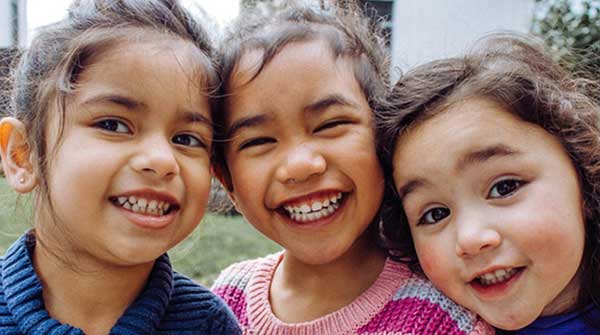By Marni Brownell
Assistant professor
University of Manitoba
Six advocates for First Nations children have gone on a symbolic hunger strike at the Manitoba legislature to raise awareness about Manitoba’s broken child welfare system. Why? More than one in five First Nations children in Manitoba spends some time in care before their 15th birthday. And kids in care are in crisis.
The Manitoba Centre for Health Policy recently released a report on the educational outcomes of children in the care of Manitoba Child and Family Services. Not surprisingly, it shows that kids in care do not do as well in school as kids who are not in care. But the reality of how far kids in care are falling behind the rest of the school age population is a shock.
The report compares kids from kindergarten all the way to high school graduation. Even when things like socio-economic status are considered, the kids in care, as a group, struggle. For example, more than half of the kids in care entering school are not ready to learn — compared to less than a quarter of their counterparts who are not in care — because many of their basic emotional and physical needs are not being met.
Only a third of kids who have been in care graduate from high school versus a 90 percent graduation rate for kids who have never been in care.
So what’s the solution? The report findings have less to do with fixing the education system than paying attention to the recommendations of the Truth and Reconciliation Commission (TRC). That’s because Manitoba has a very high number of children in care – more than 10,000 on a single day in 2014 – and almost 90 percent of these kids are indigenous.
This overrepresentation of indigenous kids in the care system has at its roots the inter-generational trauma of the residential school system, which forcibly separated children from their families and subjected many children to maltreatment. The long-term impact of these experiences is at the root of many of the difficulties experienced by indigenous families today. This includes alarmingly high rates of suicide, family violence, substance abuse, mental health issues and parenting challenges. These are the very challenges that often contribute to children going into care and also doing poorly in school.
North American child welfare agencies generally favour child-protection strategies – removing kids at risk from the home. High-profile tragedies such as the Phoenix Sinclair case in Manitoba — where five-year-old Phoenix suffered unspeakable abuse and died at the hands of her mother and stepfather after falling through the cracks of the child welfare system – influence well-intentioned social workers to err on the side of caution. As a result, they may opt to remove a child from a family where his or her safety may be in jeopardy, particularly if community support resources are inadequate.
But it is time to start questioning the wisdom of apprehending kids from their families. Other countries have instead implemented policies that provide intensive in-home resources to help address the family’s challenges while they stay together.
Canada’s resources could be better invested trying to tackle the root causes of child abuse and neglect. We know that child maltreatment is prevented when families have adequate housing, income, employment opportunities, access to addictions treatment and to mental health services, parenting skills training and parenting support. Resolving these issues would reduce the need for foster care placements and improve outcomes for entire families.
In a report released a year ago, the Assembly of Manitoba Chiefs called for the dismantling of the current child welfare system and the development of a completely new system. While this idea may seem radical, child welfare as it exists now in Manitoba is failing children and families, particularly indigenous children and families.
What if we separated prevention and care services so that they are not delivered by the same agencies? This would encourage troubled families to seek help without worrying that admitting their challenges will result in their children being taken away from them.
What is needed is a revolution in the way we address the high number of kids in care.
Marni Brownell is a senior research scientist with the Manitoba Centre for Health Policy (MCHP) and associate professor in the Department of Community Health Sciences, Faculty of Medicine, University of Manitoba.
Marni is a Troy Media contributor. Why aren’t you?
The views, opinions and positions expressed by columnists and contributors are the author’s alone. They do not inherently or expressly reflect the views, opinions and/or positions of our publication.



